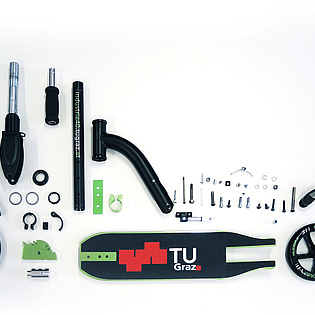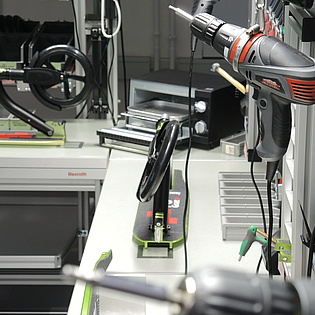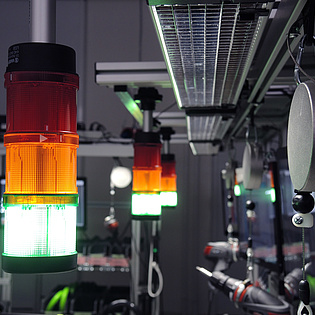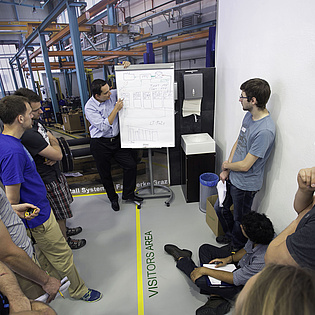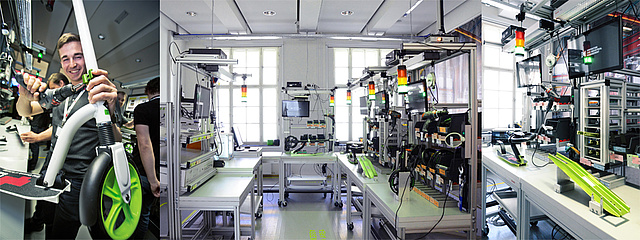
The Learning Factory Experience
A learning factory conveys experiencebased learning by reproducing an abstracted real-life environment that stimulates learner’s coginition by challenging them with a concrete, practical problem situation. The learning factory experience brings together theory and practice, incorporates emotional aspects and various environmental factors that add to the learning process.
Core topics of the IIM LEAD Factory
The learning factory at the IIM institute focuses on LEAD: Lean management, Energy efficiency, Agile operations and Digitalization.
L | Lean Management Lean thinking, in short, is about eliminating waste (transport, inventory, motion, waiting, overproduction, overprocessing, defects) in order to maximize value. To capture the full potential of Lean, not only systems and processes are of special interest. The key challenge for a successful implementation and driving lean production resides in the skills of employees operating those processes. | |
E | Energy Efficiency Production can be improved at several factors related to energy or resource productivity. Besides minimizing energy use emphasis is put on raw material, emissions and water including topics such as recovery of materials and recycling. The challenge to optimize variable costs for materials, energy or water while taking operational objectives like throughput or quality into account requires a certain mindset and specific capabilities. | |
A | Agile Operations The concept of agility from a manufacturing enterprise’s point of view is about adapting to change and thrive on it. Agility is the capability of a company to prepare proactively for uncertainties and react quickly to changes to optimize the economic situation by leveraging the whole value chain. Consequently, agility capabilities are needed in an organization to develop a competitive advantage and to respond to the increasing uncertainties positively. | |
D | Digitalization Digitalization can lead to an increase of productivity in the area of assets, energy, labor and materials enabled by smart, connected products. Further, Industry 4.0 enables especially the potential of new business models, increasing resource productivity and increasing value-chain efficiencies. However, technology is most successful when it is integrated with process improvements. Besides organizational change, leadership and a clear vision, processes and skills supporting the “how” rather than the “what” are necessary. |
Contact
Institute of Innovation and Industrial Management - IIM
Graz University of Technology
Kopernikusgasse 24/II
8010 Graz
Österreich
+43 316 873 7291
iim.tugraz.at
linkedin

